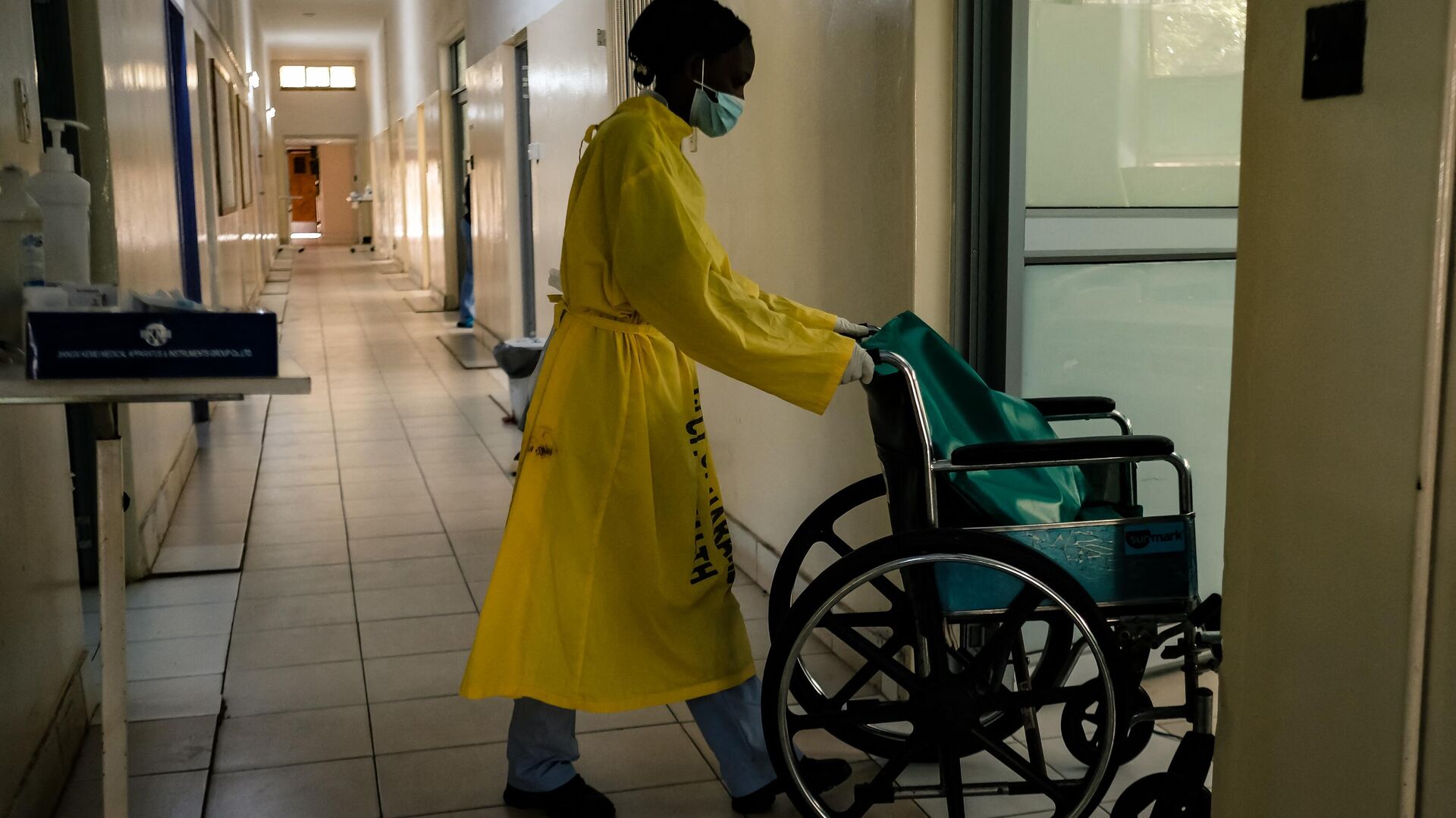https://en.sputniknews.africa/20230511/tanzania-opens-first-bone-marrow-transplant-center-1059183679.html
Tanzania Opens First Bone Marrow Transplant Center
Tanzania Opens First Bone Marrow Transplant Center
Sputnik Africa
The East African nation has opened its first bone marrow transplant center at the Benjamin Mkapa Zonal Referral hospital in the capital city of Dodoma.
2023-05-11T15:25+0200
2023-05-11T15:25+0200
2023-05-11T15:25+0200
sub-saharan africa
east africa
tanzania
medicine
bone marrow transplantation
healthcare
https://cdn1.img.sputniknews.africa/img/07e7/05/0b/1059184077_0:161:3071:1888_1920x0_80_0_0_ed750828f996ce57868a415bbd830f92.jpg
The East African nation has opened its first bone marrow transplant center at the Benjamin Mkapa Zonal Referral hospital in the capital city of Dodoma. The country's Prime Minister Kassim Majaliwa, who attended the official launch, praised the opening of the center as a major achievement for Tanzania's healthcare sector, as it will focus primarily on treating sickle cell patients, services provided only in a few African states. Majaliwa stated that the provision of the bone marrow transplant services at the hospital will relieve sickle cell patients from pains and recurrent infections.Sickle cell anemia, which is common in sub-Saharan Africa, is one of a group of inherited disorders known as sickle cell disease. It is caused by a faulty gene that affects the formation of red blood cells, leading to excruciating pain and in some cases organ failure.A bone marrow transplant is a procedure that infuses healthy blood-forming stem cells into a patient's body to replace bone marrow that's not producing enough healthy blood cells. It is also useful in the treatment of leukemia or blood cancers.According to the country's Health Minister Ummy Mwalimu, statistics indicate that 300,000 children are born with sickle cell complications every year globally. In Tanzania, the number stands at 11,000, out of which 6,000 received medical services at the clinical level. BMH Managing Director Alphonce Chandika, for his part, stated that Tanzania is fourth on the sickle cell disease rate list in the world and third on the African continent. He noted that since the launch of marrow transplant services to patients with sickle cell complications, three children have been already treated and their health is slowly improving.
east africa
tanzania
Sputnik Africa
feedback@sputniknews.com
+74956456601
MIA „Rossiya Segodnya“
2023
News
en_EN
Sputnik Africa
feedback@sputniknews.com
+74956456601
MIA „Rossiya Segodnya“
Sputnik Africa
feedback@sputniknews.com
+74956456601
MIA „Rossiya Segodnya“
east africa, tanzania, bone marrow transplant center, healthcare, hospital, dodoma
east africa, tanzania, bone marrow transplant center, healthcare, hospital, dodoma
Tanzania Opens First Bone Marrow Transplant Center
Only a few African countries, including Algeria, Egypt, Morocco, South Africa and Tunisia, have treatment facilities for bone marrow transplants. By launching a transplant center, Tanzania marks a major milestone for its health sector.
The East African nation has opened its first bone marrow transplant center at the Benjamin Mkapa Zonal Referral hospital in the capital city of Dodoma.
The country's Prime Minister Kassim Majaliwa, who attended the official launch, praised the opening of the center as a major achievement for Tanzania's
healthcare sector, as it will focus primarily on treating sickle cell patients, services provided only in a few African states.
"The launch of these services at BMH testifies how the country is making steps ahead in improving health services [...]. This is a milestone taking into account that these services can be accessed in a few countries in Africa," he said.
Majaliwa stated that the provision of the bone marrow transplant services at the hospital will relieve sickle cell patients from pains and recurrent infections.
Sickle cell anemia, which is common in sub-Saharan Africa, is one of a group of inherited disorders known as sickle cell disease. It is caused by a faulty gene that affects the formation of red blood cells, leading to excruciating pain and in some cases organ failure.
A bone marrow transplant is a procedure that infuses healthy blood-forming stem cells into a patient's body to replace bone marrow that's not producing enough healthy blood cells. It is also useful in the
treatment of leukemia or blood cancers.
"The strengthening of specialized and super-specialized services in the country has reduced the huge cost which was being incurred by the government in order to enable the needy patients to access the services abroad," Majaliwa added.
According to the country's Health Minister Ummy Mwalimu, statistics indicate that 300,000 children are born with sickle cell complications every year globally. In Tanzania, the number stands at 11,000, out of which 6,000 received medical services at the clinical level.
BMH Managing Director Alphonce Chandika, for his part, stated that Tanzania is fourth on the sickle cell
disease rate list in the world and third on the African continent. He noted that since the launch of marrow transplant services to patients with sickle cell complications, three children have been already treated and their health is slowly improving.

